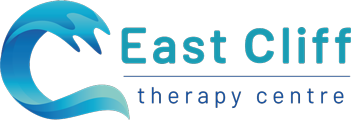Brain Injury
Bournemouth’s East Cliff Specialist Brain Injury Physiotherapists can treat any movement disorders or any problems with pain that you may be experiencing. They can advise on many of the other symptoms of Brain Injury, to inform your condition. We will also be able to put you in touch with other Neurological professionals to help you through your rehabilitation and together help you achieve your goals.
In the UK, 1,000,000 people per year attend hospital with some form of head injury. In Dorset, over 2,000 sustain a minor brain injury and nearly 200 sustain a moderate or severe injury.
50% are caused by road traffic accidents
Most at risk are young males between the ages of 15 and 30
Consequences of Brain Injury
Consequences are not limited to one set of symptoms or a disability that affects one part of a person’s life.
Any sensory, motor and autonomic function can be compromised and can include:
* Movement disorders
* Seizures
* Headaches and chronic pain
* Visual defects
* Sleep disorders
* Memory impairment
* Attention deficits
* Concentration deficits
* Language difficulties
* Visual/perception impairment
* Executive dysfunction, including: problem solving, abstract reasoning, information processing, organization, insight, judgement, planning.
* Reduced ability to initiate responses
* Verbal/physical aggression
* Agitation
* Learning difficulties
* Impulsivity
* Social disinhibition
* Mood disorders
* Personality changes
* Altered emotional control
* Depression and anxiety [these increase as cognitive levels improve]
* Social consequences – increased risk of suicide, divorce and substance abuse
* Family consequences – depression, social isolation, anger, disrupted family functioning
Some of these symptoms can occur even after a mild brain injury, so if you, or your family and friends notice any changes, it’s worth seeing your G.P. and contacting your local branch of Headway. To find the branch nearest to you, look at www.headway.org.uk, or phone on Freephone 0808 800 2244.
What happens in a head injury?
1. Primary damage – Diffuse axonal damage. At the moment of impact, the brain may strain or tear; this damages themicroscopic nerve fibres and their connections.
Bruising. Most common at the front of the brain it impacts with the hard, bony ridges inside the skull.
Primary bleeding and blood clots. If an artery or other blood vessel tears and a blood clot forms, this may pressurise the brain.
Secondary damage – Brain swelling. If the brain swells, this can reduce the flow of blood and oxygen to brain cells.
Secondary bleeding. A slow bleed may be detected later [subdural, extradural or intracerebral haematoma]
Cellular changes. A cascade of biochemical events occur which can lead to cell damage.
Severity:
The two main measures of severity are:
1. Loss of consciousness. Measured by theGlasgow Coma Scale out of 15.
2. Post-traumatic amnesia. This is the time between the injury and the regaining of awareness.
